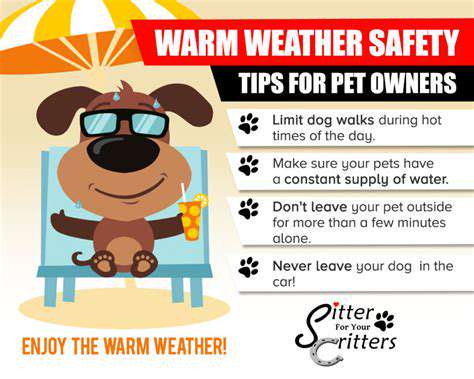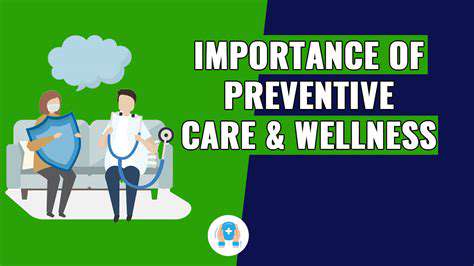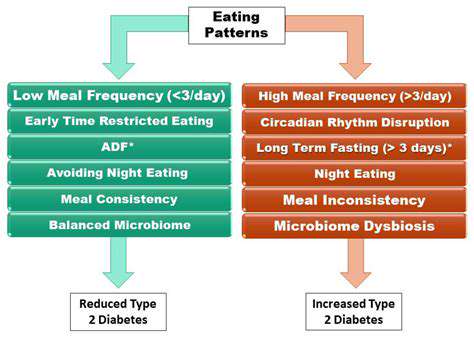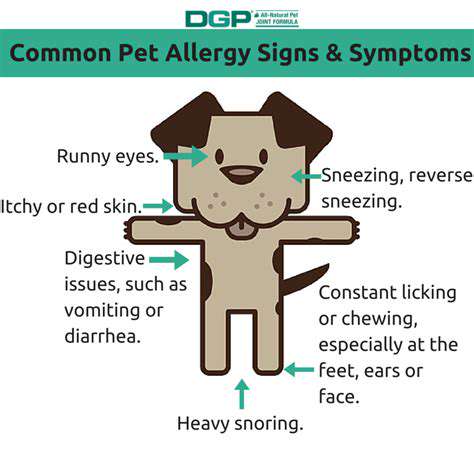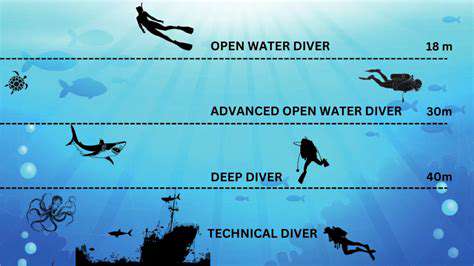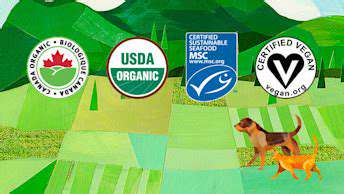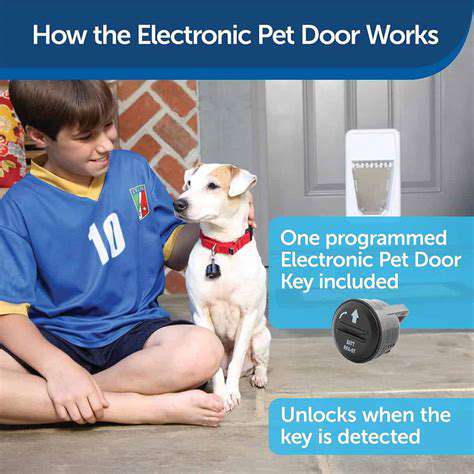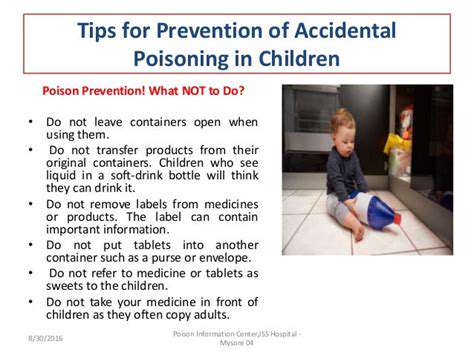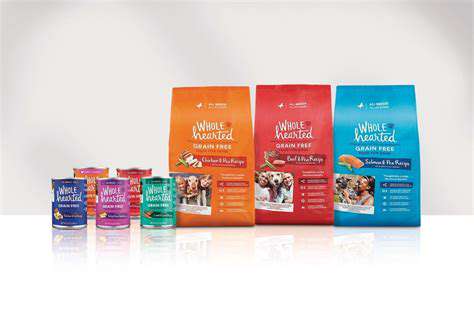Pet Food Recalls: Staying Informed and Keeping Your Pet Safe
Protecting Your Pet During a Recall
Understanding Pet Food Recalls
Pet food recalls can be a distressing experience for pet owners, disrupting routines and raising concerns about the safety of their furry companions. Understanding the reasons behind these recalls, from contamination issues to manufacturing defects, is crucial for proactively protecting your pet. It's essential to stay informed about the potential risks and know the steps to take if a recall impacts your pet's food.
Often, recalls are triggered by issues detected during quality control checks, or through reports of adverse reactions in pets who consumed the affected product. Knowing what to look for in a recall notice, such as the specific product name, lot number, and potential health concerns, can help you pinpoint whether your pet's food is affected.
Identifying a Recall Notice
Staying vigilant about pet food recalls is vital for your pet's well-being. Recognizing a recall notice is the first step in protecting your pet. Look for official announcements from regulatory bodies like the Food and Drug Administration (FDA) or the Canadian Food Inspection Agency (CFIA), as well as information from the pet food company itself. These notices usually contain critical details about the affected products, including the product name, specific lot numbers, and potential health risks.
Pay close attention to the details in the recall notice. This information is essential to determine if your pet's food is part of the affected batch. Contacting the pet food manufacturer, checking online databases, or using the relevant government agency's website are excellent resources for staying informed about recalls.
Recognizing Symptoms of Potential Issues
Monitoring your pet's health after consuming recalled food is critical. Be aware of any unusual symptoms that could be linked to the recalled product. These could range from digestive issues, such as vomiting or diarrhea, to more serious problems like lethargy, tremors, or changes in appetite. Promptly contacting your veterinarian is essential if you suspect your pet has consumed recalled food and shows any of these symptoms.
Early detection and intervention can significantly improve your pet's chances of a positive outcome. The sooner you address potential issues, the better your pet's health will be. Your veterinarian can provide guidance on how to proceed if you suspect a link between your pet's symptoms and a recalled food.
Acting Promptly Upon a Recall
When a recall is issued, immediate action is crucial. Don't hesitate to remove any affected pet food from your home. Properly dispose of the recalled product according to the instructions provided in the recall notice. This step helps prevent accidental consumption and ensures that your pet is not exposed to any potential health risks.
Thoroughly cleaning any surfaces where the recalled food may have been stored is also important to prevent cross-contamination. This diligent approach protects your pet's health and minimizes any potential risks.
Switching to a Safe Alternative
After removing the recalled food, it's essential to transition to a safe alternative. Consult your veterinarian for recommendations on suitable pet food options. Your veterinarian can offer personalized advice based on your pet's specific dietary needs and any existing health conditions. Choosing a high-quality, reputable brand is essential to ensure your pet receives the necessary nutrients.
A gradual transition to the new food is important to avoid digestive upset in your pet. Following your veterinarian's guidance can help mitigate any potential discomfort and ensure a smooth transition to the new food.
Preventing Future Incidents
Staying informed about pet food recalls is a proactive measure to protect your pet's health. Regularly checking official websites and subscribing to email alerts from relevant organizations can keep you updated on any potential recalls. This proactive approach helps you avoid potential problems and ensures you're always aware of any necessary actions.
Educating yourself and your household about the importance of pet food safety can prevent future issues. By being vigilant and taking the necessary precautions, you can contribute to the overall safety and well-being of your beloved pet.
Taking Preventative Steps
Monitoring Recalls
Staying informed about pet food recalls is crucial for your pet's well-being. Regularly checking reputable sources, such as the FDA's website, is essential. This proactive approach ensures you're aware of any potential hazards affecting the food your pet consumes, preventing potential health issues. It's important to remember that information about recalls can change quickly, so consistent monitoring is vital to maintaining your pet's safety.
Understanding how to identify a recall notice is also key. Look for clear statements about the product being recalled, the reason for the recall, and any potential health risks associated with consuming the recalled product. This will help you quickly determine if any of the pet food you have in your home needs to be removed from your pet's diet.
Recognizing Recall Signs
Knowing the signs of a recalled product is an important part of preventing potential harm to your pet. Look for specific identifiers on the packaging, such as a unique recall number or a statement indicating the product has been recalled. Checking the manufacturer's website or contacting them directly is also a good way to confirm the product's recall status. Properly identifying a recalled product will prevent your pet from consuming potentially harmful food.
Understanding the Reasons Behind Recalls
Pet food recalls can stem from various factors. Contamination with harmful substances, such as bacteria or chemicals, is a common cause. Manufacturing errors, which can lead to incorrect ingredient ratios or the presence of unsafe materials, are another significant reason. Understanding these potential causes gives you a better grasp of the risks involved and emphasizes the importance of staying informed about recalls.
Importance of Immediate Action
If you discover a recalled product in your pet's food, immediate action is crucial. Removing the recalled product from your pet's diet is paramount to preventing potential health problems. Discard the product properly, following any specific instructions provided by the manufacturer or regulatory agencies. This swift action protects your pet from potential harm associated with consuming the recalled food.
Storing Pet Food Properly
Proper storage of pet food is another preventative measure. Storing pet food in a cool, dry place, away from direct sunlight and extreme temperatures, can help maintain its quality and safety. Using airtight containers to prevent pests and contamination is also an important aspect of proper storage. Maintaining proper storage conditions minimizes the risk of spoilage and contamination, ensuring your pet consumes safe and wholesome food.
Contacting Your Veterinarian
Maintaining open communication with your veterinarian is essential. Discussing any concerns about pet food recalls or potential health issues related to pet food consumption is vital. Your veterinarian can provide guidance and recommendations based on the specific recall and your pet's individual needs. They can also help determine if your pet has experienced any adverse effects from potentially contaminated food. This proactive approach ensures your pet receives the best possible care and support.
Reviewing Pet Food Labels
Regularly reviewing pet food labels is a proactive way to stay informed about the ingredients and potential risks. Familiarize yourself with the ingredients listed and ensure they align with your pet's dietary needs and any known allergies. Checking for any warnings or statements related to potential hazards associated with the product can help you make informed decisions about your pet's food choices. This diligent approach helps prevent potential issues and ensures your pet receives the most suitable nutrition possible.
Read more about Pet Food Recalls: Staying Informed and Keeping Your Pet Safe
Hot Recommendations
- Customized Sleep Schedules: AI Driven for Sustainable Rest
- Crafting a Personalized Productivity Plan for Mental Clarity
- Sustainable Self Compassion: Cultivating Kindness Towards Your Mind
- Sustainable Productivity Hacks for the Busy Professional
- Sustainable Wellness for Parents: Balancing Family and Self Care
- Data Informed Self Care: Designing Your Personalized Wellness Strategy
- Sustainable Wellness for a Purpose Driven Life
- AI Assisted Mindfulness: Personalized Meditations for Deeper Practice
- Building Inclusive Mental Health Services: Key Initiatives
- AI Powered Self Care: Customizing Your Routine for Maximum Impact

